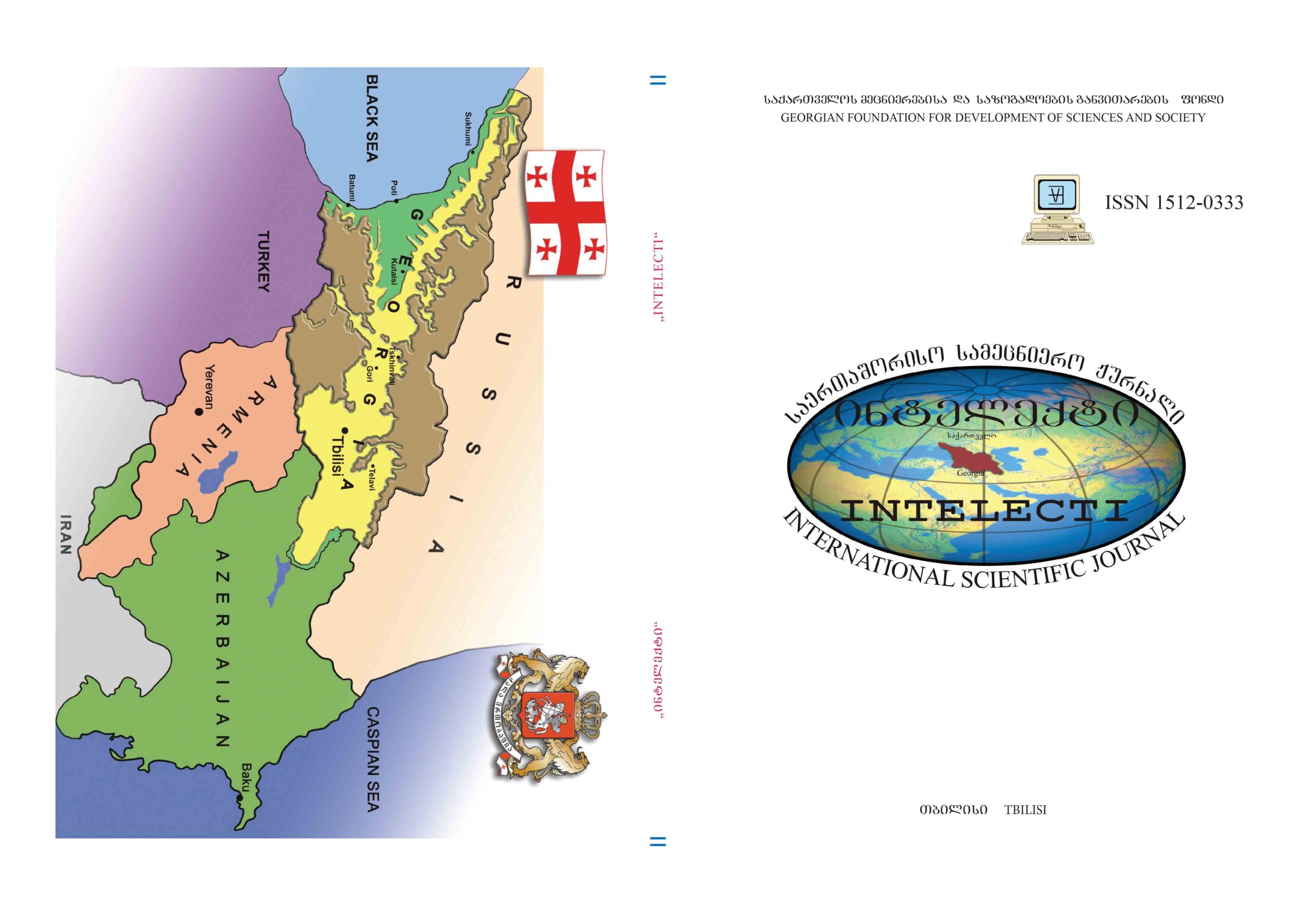საინვესტიციო კლიმატი საქართველოში: პროგრესი, გამოწვევები და სამომავლო პერსპექტივები
Main Article Content
ანოტაცია
საინვესტიციო კლიმატი წარმოადგენს ქვეყნის ეკონომიკური ზრდის ერთ-ერთ მთავარ განმსაზღვრელ
ფაქტორს, რადგან ის გავლენას ახდენს როგორც შიდა, ისე უცხოურ ინვესტიციებზე. საქართველო, როგორც მცირე და
ღია ეკონომიკის მქონე ქვეყანა, ცდილობს მიზანმიმართულად განავითაროს თავისი საინვესტიციო გარემო, რათა
ჩამოაყალიბოს მიმზიდველი პირობები უცხოური და შიდა ინვესტიციებისთვის. მოცემულ სტატიაში მიზნად
ვისახავთ საქართველოს საინვესტიციო გარემოს საფუძვლიან ანალიზს, ქვეყნის ბოლო წლებში მიღწეულ პროგრესს,
არსებულ გამოწვევებს და სამომავლო პერსპექტივებს. საქართველოში განხორციელებულმა ეკონომიკურმა
რეფორმებმა ხელი შეუწყო ბიზნესგარემოს ლიბერალიზაციას, რაც აისახა „Doing Business“ რეიტინგში ქვეყნის მაღალი
პოზიციების დაკავებაში. მნიშვნელოვან რეფორმებში შედის საგადასახადო და საბაჟო სისტემების გამარტივება,
ბიზნესის რეგისტრაციის პროცესის რეფორმა და თავისუფალი ვაჭრობის ხელშეკრულებების გაფორმება. ამ
ნაბიჯებმა შექმნეს სტაბილური და გამჭვირვალე ბაზარი, სადაც როგორც ადგილობრივ, ასევე უცხოურ ინვესტორებს
აქვთ შესაძლებელი უფრო ადვილად დაიწყონ და განავითარონ ბიზნესი. თუმცა, მიუხედავად ამ პროგრესისა,
საქართველოს კვლავ რამდენიმე მნიშვნელოვანი გამოწვევის წინაშეა, რაც აფერხებს ინვესტიციების სტაბილურ
ზრდას. პირველ რიგში, პოლიტიკური რისკები და მათთან დაკავშირებული გაურკვევლობის საკითხები
მნიშვნელოვნად ზღუდავს ინვესტორების დაინტერესებას. ასევე, არსებობს საჭიროება სასამართლო სისტემის უფრო
ეფექტური ფუნქციონირების, რაც ხელს შეუწყობს საკუთრების უფლებების დაცვას და სამართლებრივი
სტაბილურობის უზრუნველყოფას. ქვეყანაში რეგიონალური ინფრასტრუქტურული დისბალანსი კვლავ დარჩება
პრობლემად, რადგან ინვესტიციების უფრო დიდი ნაწილი კონცენტრირებულია თბილისის ტერიტორიაზე, ხოლო
სხვა რეგიონებში მაინც არსებობს განვითარების ნაკლებობა. გლობალური ეკონომიკური ტენდენციები, როგორიცაა
ციფრული ტრანსფორმაცია, მწვანე ინვესტიციები და ახალი ტექნოლოგიების განვითარება, მნიშვნელოვან გავლენას
ახდენს საქართველოს საინვესტიციო ნაკადებზე. პანდემიის შემდეგ ინვესტორების მხრიდან გაიზარდა ინტერესი
ჯანდაცვისა და ციფრული სერვისების სფეროების მიმართ, ხოლო რეგიონული კონფლიქტები და გეოპოლიტიკური
რყევები ინვესტორების რისკების გააზრებას უწყობს ხელს. მომავალი განვითარებისთვის, საქართველოს
აუცილებელია გააძლიეროს საინვესტიციო პოლიტიკის დივერსიფიკაცია, გააუმჯობესოს ინფრასტრუქტურა,
მიეხმაროს ინოვაციურ და ტექნოლოგიურ სექტორებს, ხოლო პროფესიული განათლების სისტემა ისე უნდა იყოს
განახლებული, რომ მიესადაგოს ციფრულ ეკონომიკის მოთხოვნებს. კვლევის შედეგდებიდან შეიძლება დავასკვნათ,
რომ შემოთავაზებული ნაბიჯები დაეხმარება საქართველოს გრძელვადიანი ეკონომიკური მდგრადობისა და
კონკურენტუნარიანობის გაძლიერებაში.
